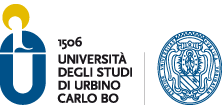
Citizens, Ancient and Modern: Concepts, Problems and Debate on Citizenship in the Ancient World and in Present-Day Europe
Конференция «Граждане в древности и сегодня: концепты, проблемы, дискуссии о гражданстве в древнем мире и современной Европе» пройдет в Урбино 10-11 апреля 2014 г. Среди возможных тем для обсуждения:
- как осуществлялось «гражданское воспитание» в древних городах?
- каким образом статус гражданина влиял на политическую, экономическую деятельность индивида, его религиозную и культурную жизнь?
- каковы были критерии включения в число граждан, и при каких обстоятельствах гражданство могло быть утрачено?
- как эти критерии менялись в Греции в классический, эллинистический периоды, и в Римской Империи?
- и др.
Заявки (тезисы до 300 слов) принимаются до 31 января 2014 г. Доклады должны быть рассчитаны на 20 минут. Язык конференции: итальянский, английский.
Оригинальное сообщение:
CITIZENS, ANCIENT AND MODERN: CONCEPTS, PROBLEMS AND DEBATE ON CITIZENSHIP IN THE ANCIENT WORLD AND IN PRESENT-DAY EUROPE
Urbino 10-11 April 2014
How was citizenship defined in the ancient world? What did citizens’ rights entail in the field of social and political life, and in the broader areas of culture and ideology? What aspects of citizenship and citizens’ status are still the subject of discussion in present-day Europe and how have the parameters of discussion changed as compared to those in the ancient world?
The conference is designed to explore questions about the concept of citizenship and the status of citizens from archaic Greece to late antiquity. It will offer both an investigation of case studies and a discussion of political and philosophical reflections on citizenship, the means of educating people about civic ideology and the cultural implications of citizen/urban culture in the ancient world. At least one paper in each session will be devoted to an exploration of aspects of citizenship in contemporary debates and political discourse and will be offered by invited speakers working in the field of law, politics, and philosophy.
Possible questions include:
In what ways was civic education promoted in the ancient cities? How did being a citizen affect individuals in politics, war, economy, religion and cultural life? To what extent was the representation and self-perception
of citizens defined by the position of non-citizens? What were the criteria for the admission in the citizen-body and in what circumstances could one lose membership rights? How did these criteria change from those of the Greek cities of the classical and Hellenistic period to those of the Roman Empire?
Proposals of no more than 300 words for 20 minutes papers in Italian or English are welcomed from all fields of Greek and Roman History. Anonymous abstracts in pdf format (file name: first three words of the title; email object: “Urbino graduate conference”) should be sent to postgraduateconference.rodopis@gmail.com by January 31 2014.
Travel expenses will not be covered, but accommodation will be provided by the University of Urbino.
Источник: организаторы.
10.12.2013Метки: Конференции, Новости зарубежного антиковедения
САЙТ СОЗДАН ПРИ ПОДДЕРЖКЕ РОССИЙСКОГО ФОНДА ФУНДАМЕНТАЛЬНЫХ ИССЛЕДОВАНИЙ (РФФИ), ПРОЕКТ 10-06-00140-а

